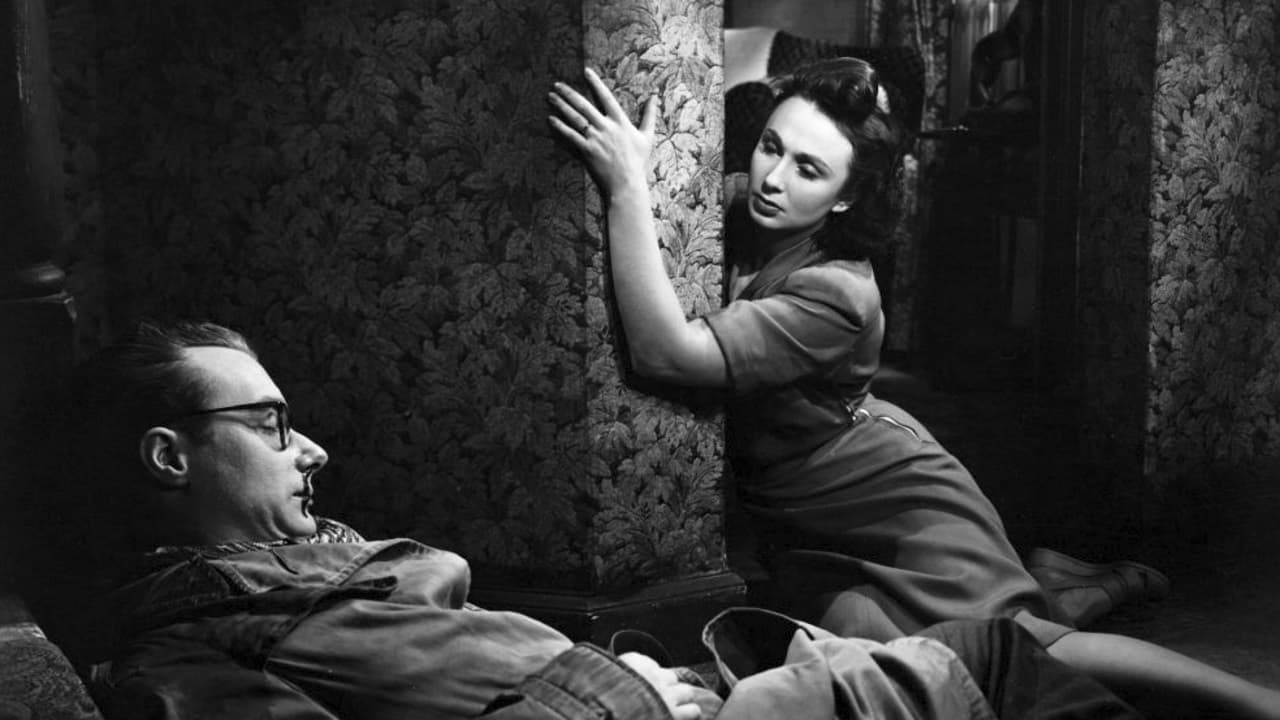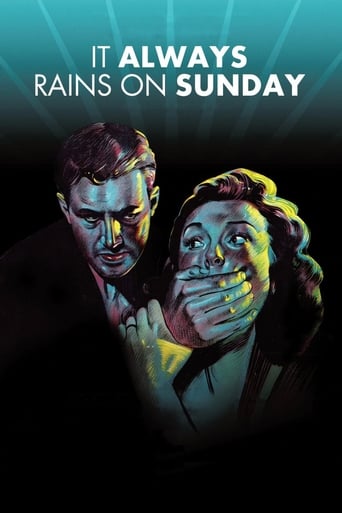

A rather splendid 1947 b/w film from the Ealing Studios. I find a lot of these films a little too sentimental and the acting a bit too stagey but this is a real surprise. Great dialogue, convincingly conveyed and together with super cinematography combine to make this a truly enjoyable if nostalgic view. The locations are more Camden than the East End, except for glimpses of Whitechapel at the start but no matter, it all looks good and the views of the railway marshalling yard at the end quite stunning. There is a central story but is is intercut with others and the whole thing bounces along nicely. Even the kids are all right and the amusing bits still amusing. Really though this is a very believable view of London's East End just after the war. Bomb sites, rationing and everyone trying to make the most of what they had. Also there was a feeling that the cops and robbers weren't really that different from each other, just on different sides and the important thing was to survive. Well worth a watch.
... View MoreIt is already listed but if you want to see the street where the family was "living" go to Hartland Road, just off Chalk Farm Road, just north of Camden Market. It is amazing how little has changed! (except the price of property!) It is odd to think that the street in which the film was set in such a period of shortages is now so close to such overt consumerism! Also nice to note that is the fact that "Rose"- Googie Withers and "lover boy" John McCallum married each other for real in the year that the film was made and are still alive and married to each other today! I wonder if films which are so "depressing" could be made today. Maybe the audience is just not there anymore. Conditions have improved since then and film-makers have to relate to their current audiences (usually under 25!)
... View MoreFilm Noir defies definition, plenty disagree whether its a movement, genre, style. Perhaps its more usefully conceived as a sensibility, a world view, an attitude. In which case the words pessimism, determinism ie characters lacking choice their lives are predetermined, doom, gloom, the past coming back to affect the present all spring to mind. Its possible to see a cycle of films with remarkably consistent features in terms of visual style emerging in U.S primarily and to a lesser extent the U.K and France in the forties and fifties. While most noir films have a male as the central protagonist, a male who is invariably weak and flawed, a number of these films, such as Mildred Pierce, have a female protagonist. Noir manifested itself differently in Britain, combining with elements of what was to become known as kitchen sink or social realism and frequently concerned with social class.This film uses the claustrophobic interiors of the terraced house to great effect. The noir style of long shadows, oblique angles, becomes more evident in the final climax, not really needed early on since the interiors work effectively without lighting effects. Melancholia drips through this like the rain of the title, Googie Withers is terrific, her face a mask of dreams, desires pushed away, disappointment etched over her features through her hard make up. How different she is in appearance to the femmes fatales of the U.S movies, bustling round the kitchen in her pinafore, then later on the almost military smartness of her utility dress when she attends Tommy. As a character shes every bit as strong however as her American counterparts. Like Mildred Pierce, she's strong in a domestic setting, when the usual convention for women in noir is to take them out of the domestic, placing them typically as nightclub singers or gangsters molls. In details I ll acknowledge this is on occasions cheesy and dated. Scratch at the surface however and its a fascinating exploration of the social tensions emerging after World War Two. How were people to adjust to life in peacetime? Were they able to return to the rigidly prescribed roles they d had prior to the war? Ealing studios produced a number of films which now can be seen to share many affinities with American Film Noir, this is one of the most interesting and rewarding.
... View Morei have to disagree with the other reviewer. this a good, solid drama that captures the mood of post war london expertly. the stories mesh together well and the performances, with one notable exception, are first rate. the atmospheric photgraphy adds to the overall feel of the piece and the climax is very exciting.
... View More